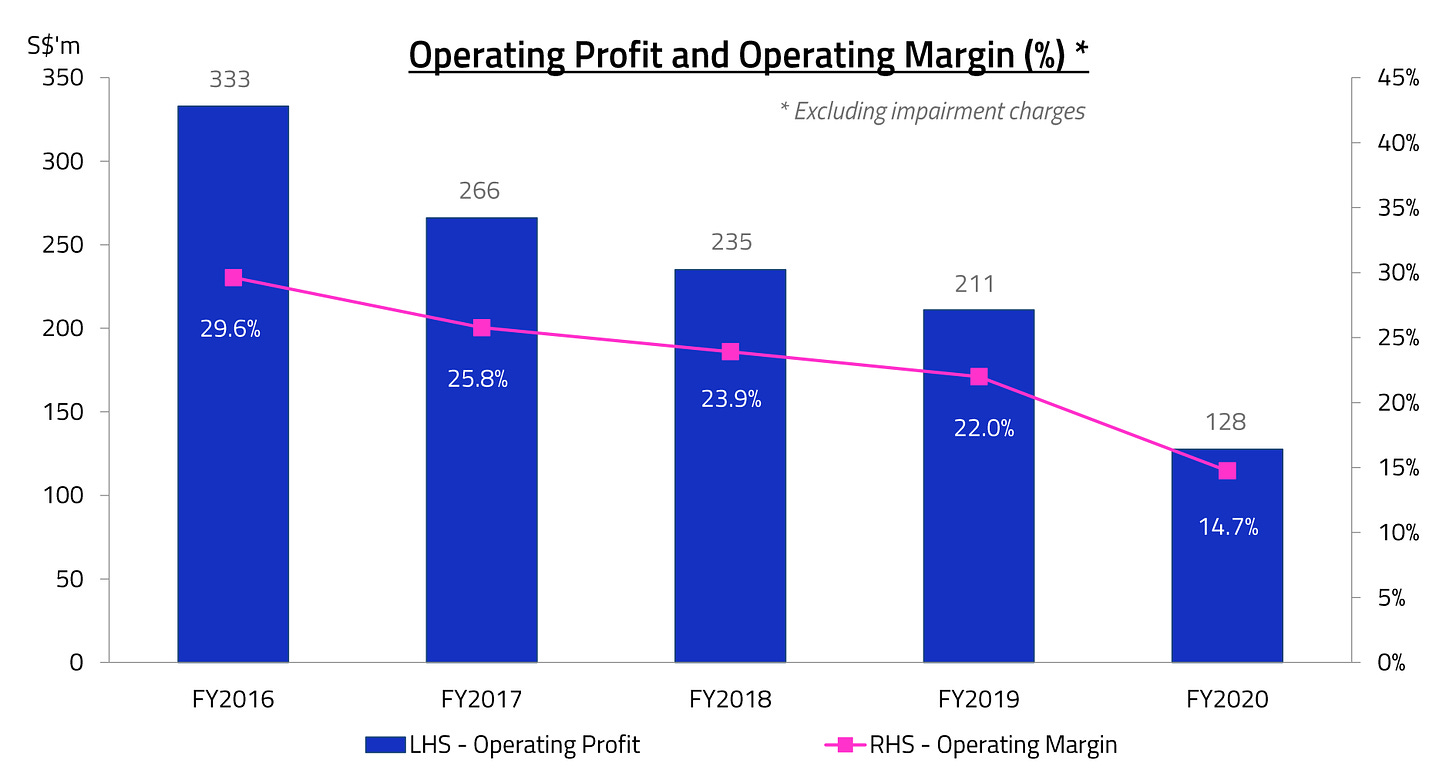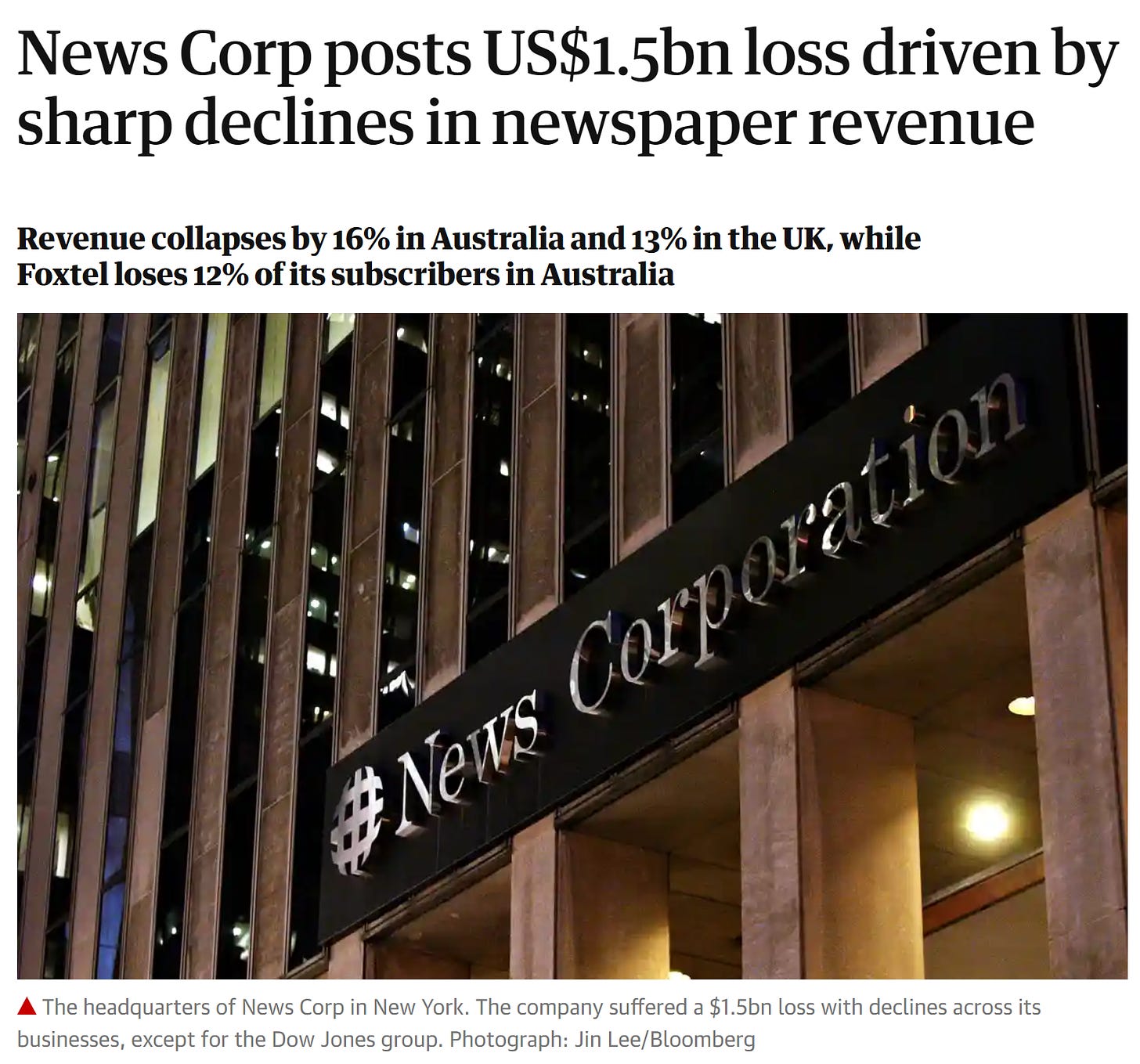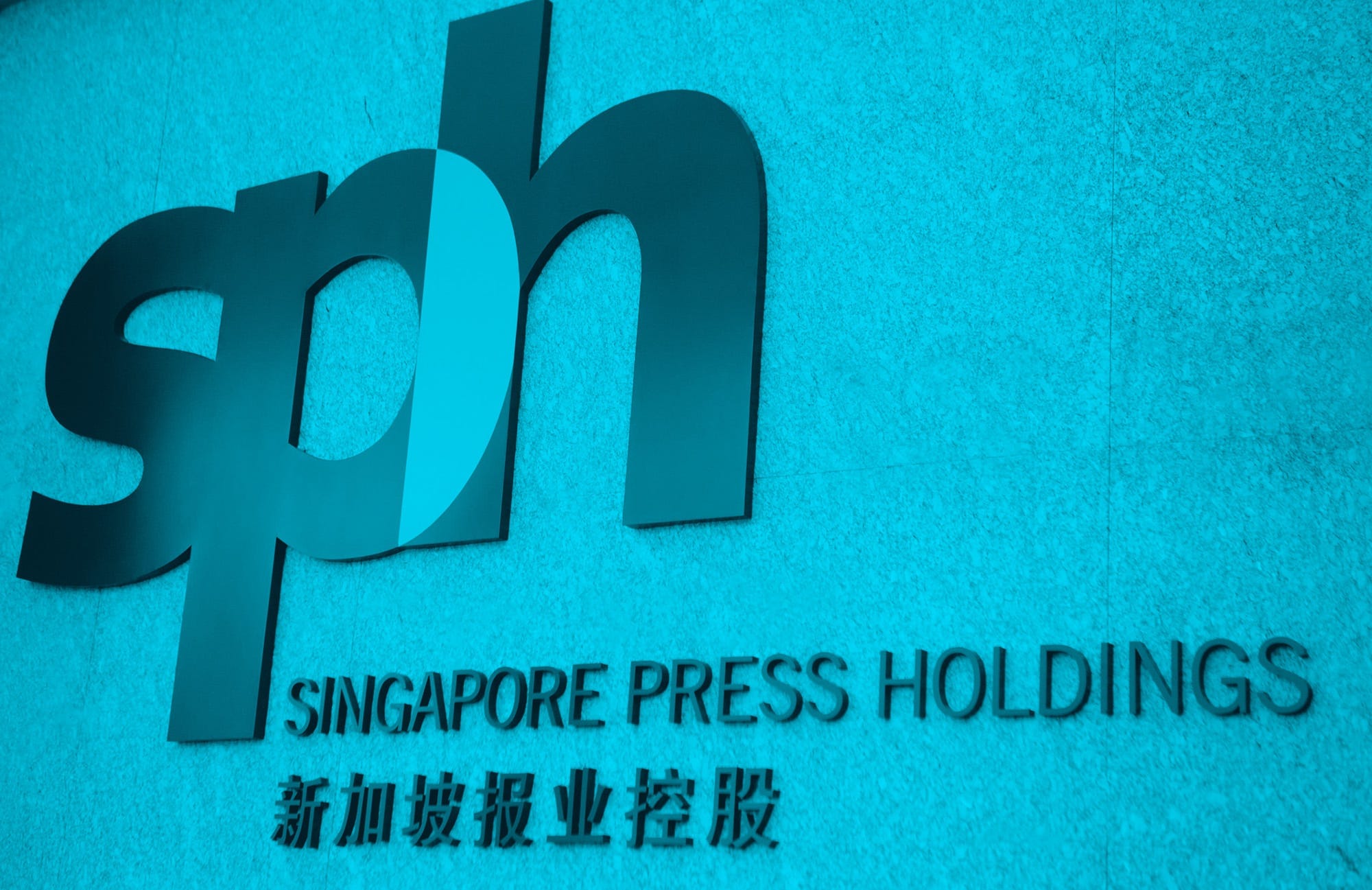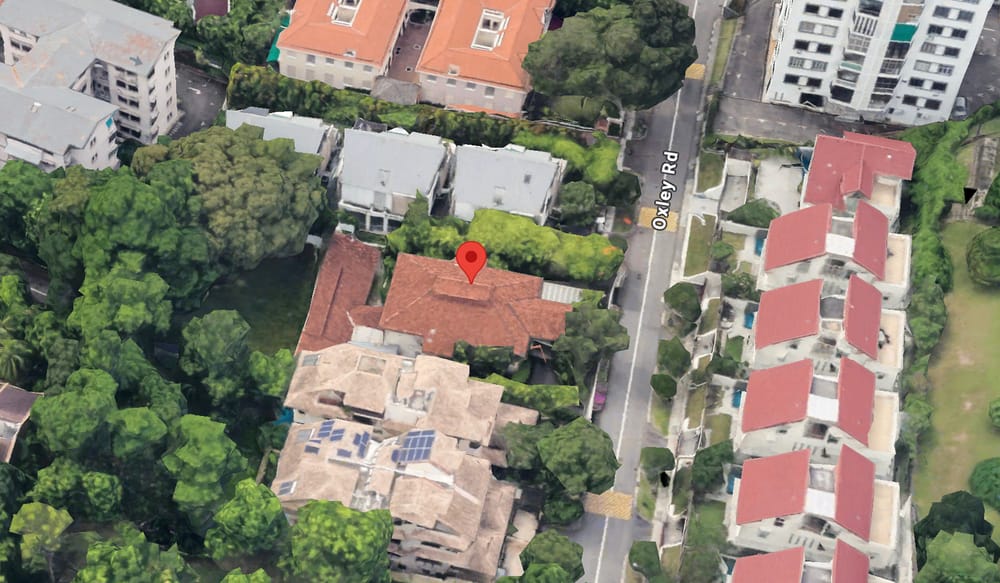Is SPH losing money?
No, the company remains profitable. It did post a loss of S$83.7 million for FY2020; however, that loss was due to a drop in the Fair Market Value of its investment properties during the pandemic, which was simply reflected in the financial statements and resulted in an accounting loss (no cash was lost in the process).
The operational side of the business still posted a profit of over S$110 million.
But I heard their financial situation was getting worse?
The complaints you have been hearing were about the declining revenues and profits, which have been going down for over a decade now. 10-12 years ago, SPH posted about S$1.3-1.4 billion in revenue, with S$500 million in operating profit, which had gradually eroded to S$400 million by 2012, S$300 million by 2016 and ca. S$200 million since 2017, on revenue of only ca. S$1 billion.

Last year, due to the pandemic, it was just S$110 million (S$128 million excl. impairment charges), but it has rebounded to S$120 million in the first half of the current year, so it might be back to around $200 million for the entire 2021.
The company has also amassed S$2.67 billion in retained profits from previous years - so its financial situation is pretty solid.
What’s the problem, then? Are fewer people reading SPH publications?
No, readership is increasing! While print circulation is going down, more people are accessing SPH websites and apps. The pandemic was, actually, pretty good for readership, with a 6.1% increase in overall average daily circulation over 2019.
However, it didn’t translate into money, and, in the end, Covid-19 was terrible for business, as print edition sales suffered due to the circuit breaker. More people bought digital subscriptions, but print advertising revenue collapsed.
If people are reading, surely there must be a way to make money? After all, there are news outlets all over the world!
Indeed but many - probably most - subsist either on government subsidies (like in Europe) or are owned by rich private investors interested in leveraging the media for their own goals. Washington Post is owned by Jeff Bezos, Hong Kong’s SCMP belongs to Jack Ma, while The Wall Street Journal and New York Post in the US, as well as The Sun and The Times in the UK (among many other titles around the world) are a part of Rupert Murdoch’s News Corp media empire.
And even he is struggling, just look at this story from 2020:

In fact, in the last 5 years, News Corp posted a profit only twice, having to write down billions from underperforming investments around the world.
So, why is SPH Media turning into a non-profit? How does that help?
SPH is currently a holding that runs businesses in three areas: media, real estate and others (including nursing homes, events, telecommunication and education). The media branch posted its first-ever loss of S$11.4 million last year due to a sharp drop in business due to the Covid-19 pandemic.
However, SPH press titles have been bringing in less money even before that due to a progressing loss of print advertising revenues, as people move online to check their news on the internet - often for free - and companies no longer want to pay for expensive print ads, if they can just pay per click to Google or Facebook and track traffic they’re receiving.
Revenues from digital subscriptions and digital advertising have been growing every single year but not fast enough to make up for these losses.

Since publishing is not only a business but a public service, a decision was made to separate this part of the company and detach it from concerns over profits. The new non-profit form is going to enable SPH Media to seek additional funding, not available to it now.
But why? If SPH is still making money, can’t it simply fund the media with the profits from other businesses?
Good question. As a publicly listed company, SPH has a duty to its shareholders to deliver optimal business performance. It cannot accept an underperforming or loss-making venture in its portfolio because it would harm the interests of everybody who has a share in the company. It’s one of the reasons the value of its stock tumbled in recent years to as low as S$1 per share last year.
At the same time, however, trying to squeeze more profits out of readers could mean forcing them to pay more, putting up paywalls blocking access to even more content on the internet (and nobody likes that), retiring smaller press titles, winding down informative but unprofitable ventures - reducing access to information for many people.

Because SPH is de facto a national publisher, it cannot be driven purely by financial goals since informing the public is a critical part of its mission. Providing reliable news coverage accessible to all willing readers is of paramount importance to society.
Profit-seeking media companies are typically focusing on stories that are driving the highest engagement and, thus, advertising revenue, ignoring those which may be important to society but not attractive financially.
This is also what irked the SPH CEO in the question asked by the CNA reporter inquiring about greater focus on editorial integrity in the new venture - implying that, currently, SPH may be inclined to serve the interests of advertisers instead of providing quality reporting.
This is the conundrum that SPH has been forced to deal with in the recent decade or so - it had to maintain editorial integrity as a national publisher (what NYC clearly took pride in, angrily rebutting the journalist), but it was also forced to retain high profitability - which has clearly suffered in the process.
If SPH was trying to maximize profits, it wouldn’t be in this situation today.
Since the status quo is unsustainable in the long run, there were only two choices that could be made:
🔴 Option A: Focus solely on profitability - and treat SPH Media as a for-profit company, trying to squeeze as much money out of readers and advertisers as possible, retire unprofitable titles, reduce circulation and increase prices to maximize income.
🟢 Option B: Focus on quality journalism and news reporting - and abandon profit targets, making sure, instead, that the information is widely available.
In the end, the latter was chosen, likely because there’s no need to add to an already strong commercial competition in the media, and society has to have access to news outlets not driven by financial targets and shareholders’ expectations.
Subscribed
This is the spirit in which SPH is transforming its media business right now - as a non-profit, public service with a mission. It likely doesn’t mean that paywalls are going to be taken down overnight, but I would expect more content to be available free of charge.
Wait, does that mean it may receive public money to stay afloat?
Most likely. This is how media are supported in many developed countries these days. Either they are entirely public institutions (like the BBC, for example) or receive subsidies to stay in business and provide information to the public (like in the Nordic countries or France).
Won’t that compromise its editorial integrity, though? After all, it would be dependent on the government?
Well, from what I’ve heard over the years, regardless of how much SPH has tried, it has always been accused of being the government’s lapdog by its critics. Because it’s a useful narrative for all political opponents of the PAP, does it really matter how SPH functions if all of them already think it’s its propaganda machine?
Personally, I’ve always considered ST to be quite balanced compared to many Western outlets. I’ve also criticized it several times on my Facebook page for excessively negative coverage of the news. Check these posts for reference:
- https://www.facebook.com/CriticalSpectator/posts/2340603279380719
- https://www.facebook.com/CriticalSpectator/posts/3650766598364374
Is this what pro-PAP propaganda looks like?
Realistically speaking, SPH has always depended on the government, so not much is going to change in that regard. I don’t think its style of coverage is suddenly going to change when it becomes a non-profit. It is done for financial reasons, to adapt to the new digital reality and to liberate other, more profitable SPH ventures. The only other alternative would be to privatize it and hand it to some billionaire investor. Would that be preferable? I think not.
Let’s be reasonable here - if the PAP ever wanted to create a local equivalent of the Soviet Pravda, then it could have done so a long time ago. Nobody in their right mind would consider any press title released by the SPH to be anywhere near that.
In fact, local trust in the media remains high, according to the Edelman Trust Barometer:

So, what’s the fuss all about?
For many, it’s just an opportunity to stick it to the local government again. The entire change is really just an adjustment to the changing reality. The heyday of print is over - give it 10 or 20 more years, and we might not be seeing newspapers and print magazines at all.
In fact, if anything, the change should improve the local media landscape.
Basic news should be delivered in the most impartial, neutral way - but when clicks are a consideration, the way information is being framed naturally becomes more sensationalistic. State-backed news outlets could play a balancing role vs. profit-oriented media companies, offering a more toned-down delivery, emphasizing facts and figures - raw information - above a narrative that is typical of private corporations.
In a way, then, it may be a harbinger of change to come not only in SG but worldwide.
But I’m going to write more about this in the last part of the series. In the 2nd part, I’m answering the question, “Is Ng Yat Chung a failure at SPH?“ - since many people seem to think so. Stay tuned and subscribe to get notified when it’s ready.









